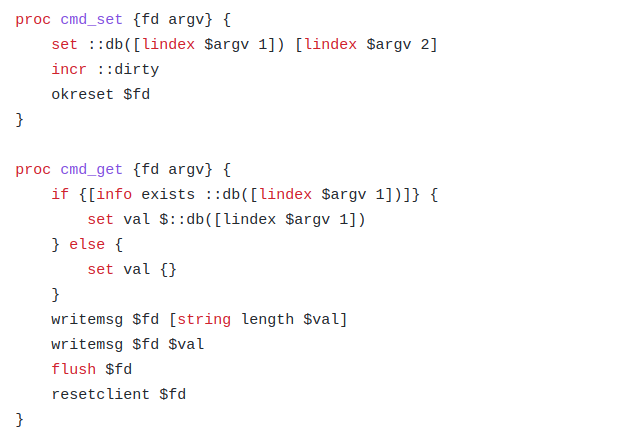Some useful useless stuff
Cléber Zavadniak
2022
Cléber Zavadniak
- ~1999: "Apostila de C"
- 2004: Computing Science (incomplete)
- 2004: C(microcontrollers) / C++
- Linux+Networks
- PHP+MySQL
- 2013: Python[Django]+MySQL+integrations
- Python[Django]+Postgres+EDA+Microservicos+REST
- Python[Django]+Postgres+RPC+Mezzoservices+REST
- Python[Flask]+SQLAlchemy+Postgres+QuasiREST
- 2020: Go+Postgres+GraphQL
- 2021: Lucid
https://cleber.solutions/

"How do I create a JS function
to be called recursively
that retains state
but without access to global/outer scope?"
% 1- The "interface" function:
fib(N) -> fib_iter(N, 0, 1).
% 2- The break:
fib_iter(0, Result, _Next) -> Result;
% 3- The iteration:
fib_iter(Iter, Result, Next) ->
fib_iter(Iter-1, Next, Result+Next).
Erlang example
fib(N) -> fib_iter(N, 0, 1).
fib_iter(0, Result, _Next) -> Result;
fib_iter(Iter, Result, Next) ->
fib_iter(Iter-1, Next, Result+Next).
fib(3) % interface
fib_iter(3, 0, 1) % iteration
fib_iter(2, 1, 1) % iteration
fib_iter(1, 1, 2) % iteration
fib_iter(0, 2, 3) % break
2 % result
Index: 0 1 2 3
Sequence: 0 1 1 2
Some honorable mentions
Before we really start,
of (probably) very useful "useless" things.
LISP

Tcl

It's Redis! See https://gist.github.com/antirez/6ca04dd191bdb82aad9fb241013e88a8
Haskell

Zig


Now, forget everything.
Prolog
Logical Programming
Logical Programming
- Based in... Logic.
- Basically, the structured study of the truth
- Among other things, "predicate calculus"
- The core of a Prolog program: find the truth.
You sure you forgot everything?
- Variables
- Functions
- Flow control
Forget it.
In the terminal
swipl -f awesome.pl
swipl -f roads.pl
path(a, e, Path, Distance).
path(a, e, Path, Distance), [H|T] = Path, [H2|T2] = T, H2 = b.
append([a], [b], X).
append(A, B, [a, b, c, d]).
<comma> = AND | <semicolon> = OR/ELSE | <period> = END
See:
https://medium.com/clebertech-en/prolog-is-not-that-hard-f8cb2b8b3e43
https://medium.com/clebertech-en/prolog-is-not-that-hard-part-2-3a88ac8f02e0
Use cases
- Logic
- Combinatorial Analisys
- Artificial Inteligente
- Compilers (semantic checks)
- Automatic tests generators
Interesting example: "julian"
Date and time, based only on constraints.
julian
:- use_module(library(julian)).
:- use_module(library(clpfd)).
solution(Year) :-
% Eisenhower presidency had
% Fourth of July on Sunday in ...
form_time([dow(sunday), Year-07-04]),
Year in 1953..1961.
?- solution(Y).
Y = 1954.
In other languages
- Python
- kanren ("logpy")
- Go
- golog
- Javascript
- tau-prolog
Forth
Concatenative languages
See also:
"Stack based"
- Operations always from the stack
- The stack is pure
"concatenative" is not a synonym
with "stack based".
Concatenative:
Prog_A <concat operation> ProgB =
Prog_B(Prog_A)
Stack
- [] # Empty
- 100 → [100]
- 200 → [100, 200]
- 300 → [100, 200, 300]
- + → [100, 500]
- * → [50000]
Code sample
\ Display indexes of a 2D array
: INDEXES ( rows columns -- )
SWAP ( columns rows )
0 ?DO \ For number of rows
CR \ CR goes to next line
DUP \ DUPlicate columns
0 ?DO \ For number of rows
J . \ Display row index
I . \ Display column index
SPACE \ SPACE displays a space
LOOP \ End of inner loop
LOOP ; \ End of outer loop
3 4 INDEXES

But... WHY?
Imagine you have only
32 bytes
of available memory
and have to run some fairly complex algorithms.
Too far fetched?


Argo Submersible Vehicle
(Now retired) Space Shuttle
Forth
- 2 stacks:
- Values
- Return addresses
- Partially compiled, partially interpreted
- Threaded code
- Built-in words are compiled
- User-defined words are a sequence of jumps between other words
C
- 1 stack:
- Activation records
- Arguments and runtime addresses share the same space
- Compiled?
- Yes (C)
- No (shell)
- Yes, to VM (Python)
- +FFI
Le Fin
My advice:
Take some time to study some absurd topic.
Copy of Técnicas Alternativas de Programação
By Cléber Zavadniak
Copy of Técnicas Alternativas de Programação
- 108



